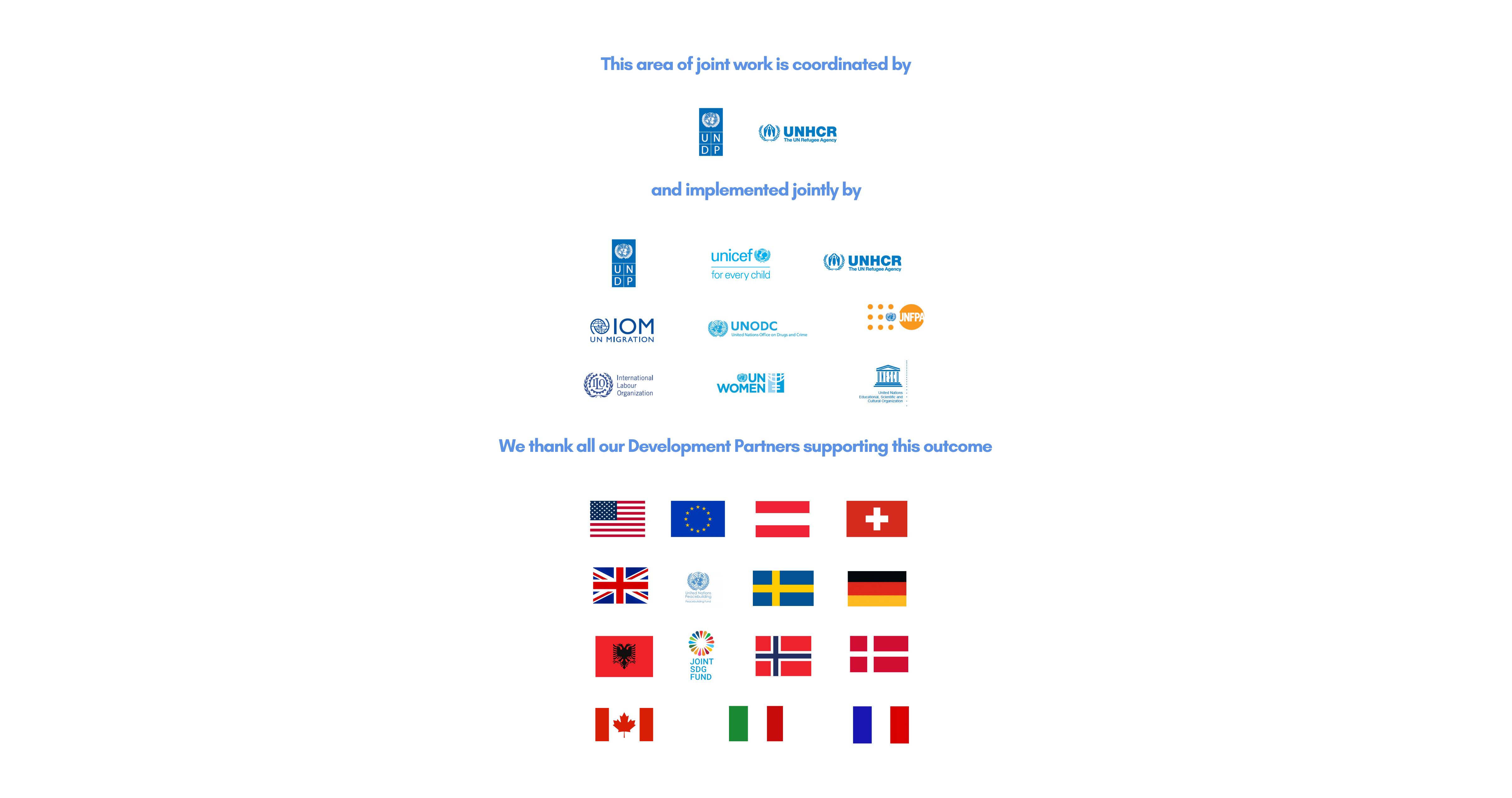Empowering youth against hate speech in the Western Balkans
Fake news, misinformation and hate speech are causing significant harm to mental health, exacerbating social divisions and eroding trust in public institutions throughout the Western Balkans. Marginalized groups, particularly women and girls, are frequently targeted by hate speech. Of particular concern is the role of social media, which has become a fertile breeding ground for disinformation. Under a WB regional initiative supported
by the UN Peacebuilding Fund four UN agencies (UNDP, UNFPA, UN Women and UNESCO) are collaborating to empower young individuals to take a stand against hate
speech and cultivate a safer digital environment. The project is engaging a diverse range of youth, including students, journalists, decision makers, politicians, artists and activists.
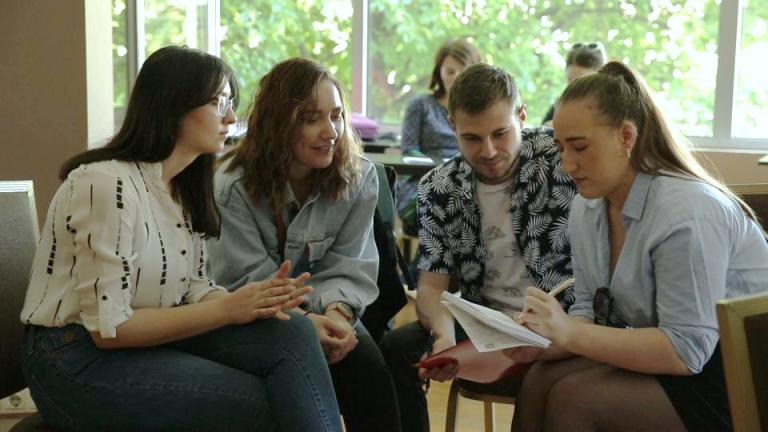
Access to Justice
The UN supported government in improving and implementing changes to the justice system normative framework. Development and adoption of the first Cross-Sectoral Strategy for Protection of Victims of Crime, the inclusion of GE and child rights in the draft new Criminal Code and the National Plan for EU Integration and Roadmap as part of Chapter 23 (Judiciary and Fundamental Rights) were major achievements.
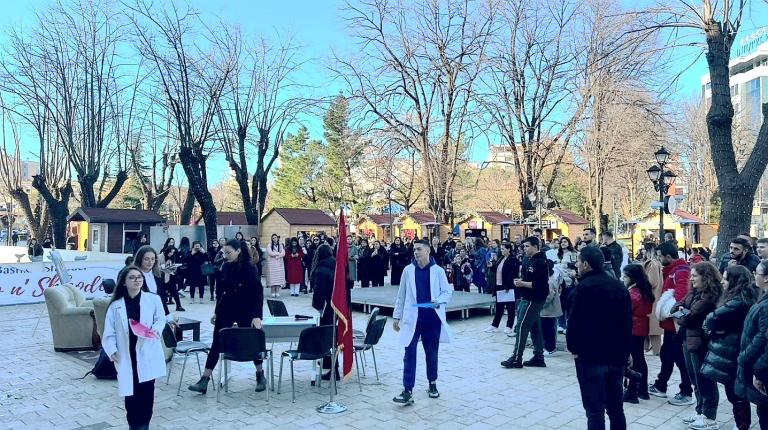
Another important result was the issuance of the statelessness determination procedure by the Ministry of Interior (MoI), fulfilling Albania’s pledge at the 2019 High-Level Segment on Statelessness and the renewal by government of the commitment to strengthen implementation of statelessness provisions in the 2023 Global Refugee Forum.
Good governance, participation and voice
In 2023, the UN continued its efforts to enhance the involvement of civil society and youth in decision making by establishing a supportive legal and financial framework.
Cash assistance services: Analysis was conducted to understand perceptions of cash assistance services and their impact on family dynamics, informing improvements to the social protection strategy. Approximately 10,000 families in Bulqize, Kamez, Kukes and Puke were reached with public awareness initiatives on the right to access social protection benefits. Capacity-building initiatives benefited 95 staff in selected municipalities, promoting an integrated approach linking cash assistance with services of employment, education, health and law enforcement, and addressing issues of illegal emigration, domestic violence and trafficking.
Data and Evidence
In 2023, the UN addressed key challenges to the collection and analysis of statistical data through several initiatives supporting Albania, including the following:
Cultural development indicators suite: Results of the Culture for Development Indicators Suite for Albania were completed and presented, underlining key challenges and supporting long-term policy development.
Child, adolescent and youth-focused indicators: In the framework of the National Official Statistics Programme 2023–2026, INSTAT published more than 120 such indicators accompanied by an interactive visualisation dashboard. To enhance monitoring of the Agenda of Child Rights, the Child-focused indicators platform was restructured to fit with the improved regulatory framework, expanding the scope and number of indicators from 58 to 62. The released data were instrumental for MoHSP drafting a mid-term monitoring report for the National Agenda for Child Rights 2021–2026.
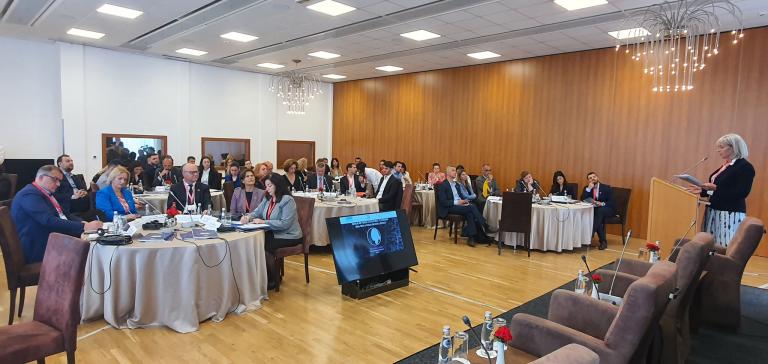
Public sector accountability and quality services:
Improved access to public services and the quality and efficiency of their delivery to citizens and businesses was evidenced in 2023 through the active contribution of the UN in strengthening governance, digital capabilities and adherence to international standards.
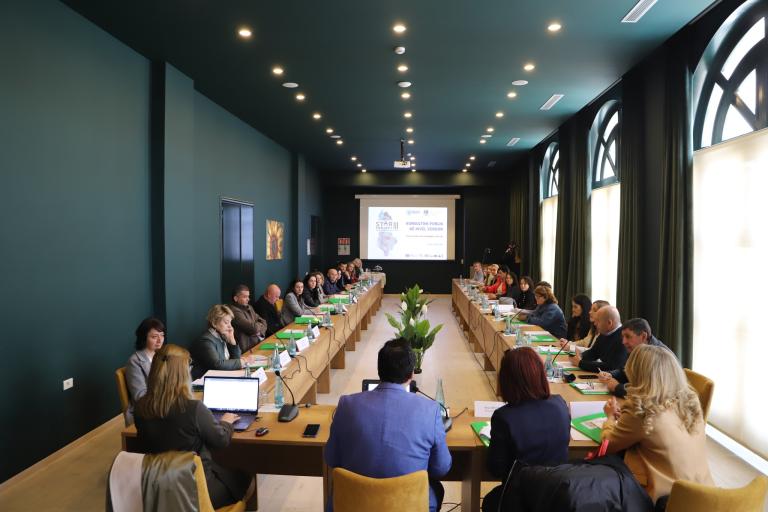
The UN actively supported the EU accession processes through tailored expertise, knowledge and best practices in Cluster 5 (Resource, agriculture and cohesion) and Cluster 3 (Competitiveness & inclusive growth) including possible regional flagship events in the energy and climate space, as follows:
Accountability and oversight for human rights
Advocacy and engagement with Parliament and national human rights institutions (NHRIs) in 2023 centred on crucial issues that included child rights, GE, combating non-discriminatory violence against women (VAW) and addressing harmful practices. To enhance public oversight, capacities of monitoring mechanisms were strengthened, with specific focus on generating evidence on the situation of vulnerable groups such as irregular migrants, including the following:
- Friends of Children group of Members of Parliament was equipped with information and arguments on child rights that were effectively used during 4 oversight hearings and on improvement proposals to two bills.
- The newly established Parliamentary Institute was supported to conduct a legal comparative analysis on the digital rights of children.
- Parliament increased the budget for the National Ombudsperson (People’s Advocate) during the mid-year budgetary review, a key advocacy point of the UN over the past few years.
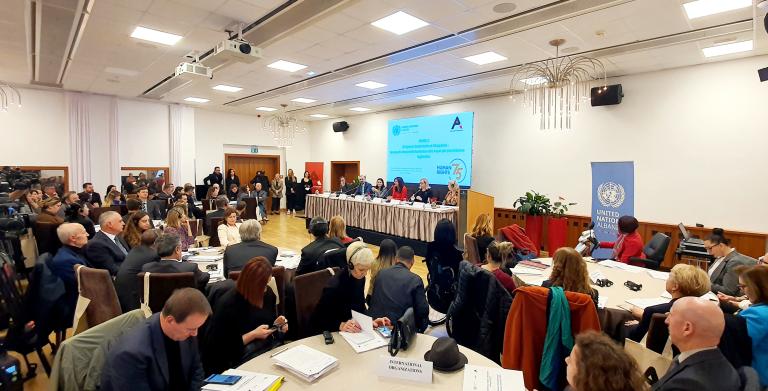
Migration and asylum
During 2023, support for migration policy and institutional capacities in managing mixed movements of refugees and migrants in Albania yielded significant results, contributing to a comprehensive approach in managing migration, ensuring protection and advocating for the rights of vulnerable individuals and families.
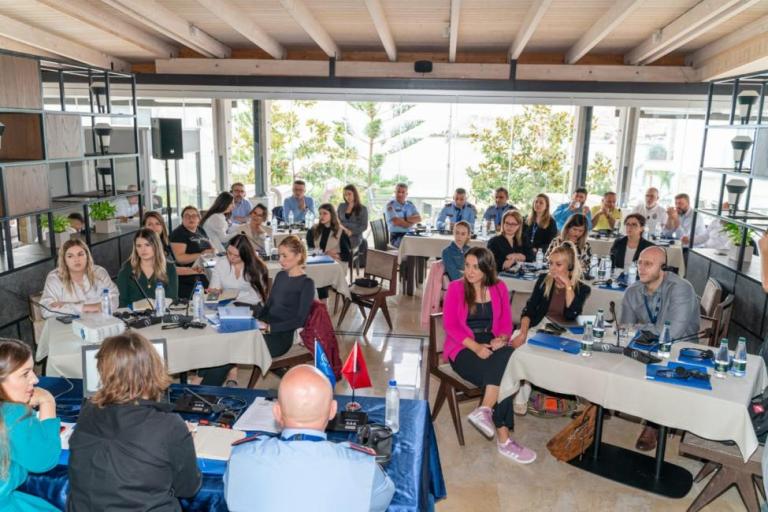
MoI is developing the National Strategy on Migration and Action Plan 2024–2030, while a Migration Governance Indicators assessment and evaluation of the Global Compact on Migration were conducted to inform the new Strategy on Migration.
Highlights of Results on Governance, Rule of Law, and Human Rights
People
had access to justice with UN support
Children
in conflict or contact with the law, or at risk of trafficking and 43 parents obtained legal assistance, access to employment programmes, medical attention, social housing or shelter through support of the UN
Municipalities
established more efficient and transparent system of funding of CSOs from public sources
Justice Professionals
were trained on justice for children for both children in conflict and those in contact with the law
Municipalities
adopted integrity plans as a corruption prevention tool

